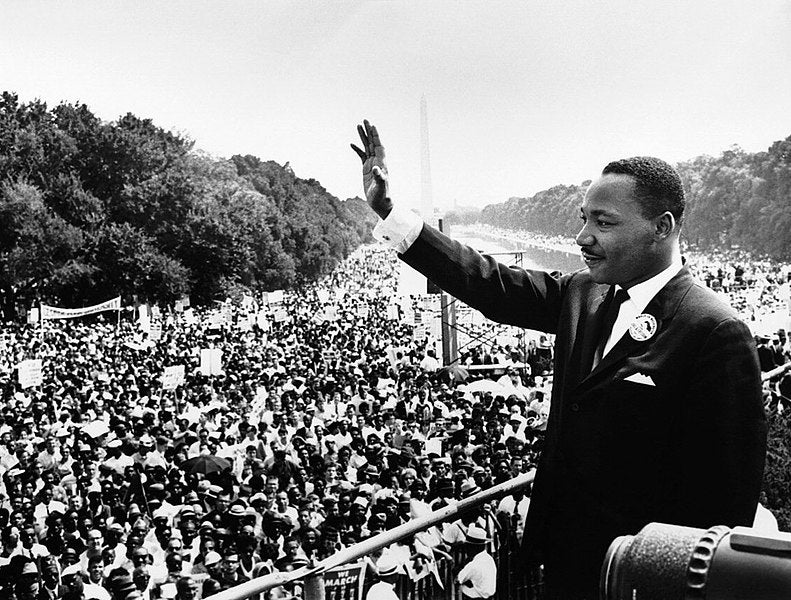How do we create a more equitable society? The debut episode of Aspen Insight dives into this question with three stories that examine some of the most critical societal challenges we face and offer possible solutions.
Listen and subscribe to the podcast from your mobile device:
from Apple Podcasts | from Stitcher | from RadioPublic
First, Clarence B. Jones, a close advisor to Martin Luther King, Jr., discusses what it was like to work with King during the height of the Civil Rights Movement. He talks with Michele Norris, executive director of The Bridge at the Aspen Institute, about why Americans continue to grapple with talking about race. Then, three Institute Fellows explore the idea of “truth and reconciliation.” A concept that comes mainly from post-Apartheid policies in South Africa, truth and reconciliation concerns the actions taken by a government or society to attempt to move on from a national trauma. Their discussion touches on what the US can learn from South Africa in confronting the darker parts of its own history.
The episode also touches on another social inequity: education. For certain segments of students around the country, there are structural barriers that make it difficult for them to earn a college degree. The final story explains how an innovative program from a community college supported by the Institute’s College Excellence Program is breaking down those barriers. A first-generation American talks about how this program helped her get to college and achieve her goals.
You can download the episode and subscribe to the podcast by searching for “Aspen Insight” on Apple Podcasts, Google Play, or Stitcher. Share your thoughts and join the conversation on social media using #AspenInsight.
To find more information about the topics and Aspen Institute programs featured in this episode, you can visit the links below:
- The Bridge at the Aspen Institute
- Clarence B. Jones at the Aspen Ideas Festival
- Martin Luther King, Jr.’s “Beyond Vietnam: A Time to Break Silence”
- The Aspen Global Leadership Network
- The Resnick Aspen Action Forum
- The College Excellence Program
- “Structural Equity: Big-Picture Thinking & Partnerships That Improve Community College Student Outcomes”


